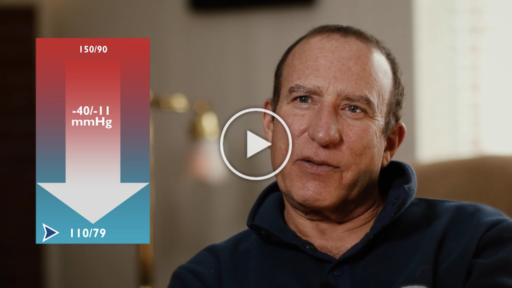What is Metoprolol?
Metoprolol is the generic form of the brand-name drug Lopressor, prescribed to treat high blood pressure and prevent angina (chest pain).
High blood pressure is a medical condition that may require you at some point to be taking certain types of anti-hypertensive medication. As part of keeping our readers informed we want to be able to provide the information, you need to know about some of the most widely prescribed medications.
That being said we are not medical doctors or pharmacists. So the information we provide is not medical advice. It is consumer information for you to discuss with your physician if need be and to better educate the general public about medications they may be taking.
Is Metoprolol a beta blocker?
Metoprolol is a type of medication called a beta blocker. Beta-blockers are drugs that block the effects of adrenaline, the hormone that triggers your body’s fight-or-flight response when you’re stressed. This slows your heart rate and eases up on the force your heart squeezes with. Your blood pressure goes down because your heart isn’t working so hard. These medicines can also relax blood vessels so the blood flows better.
Metoprolol can also improve the likelihood of survival after a heart attack. Doctors prescribe the long-acting form of the drug (Toprol XL) to treat heart failure.
Do not stop taking Metoprolol all of a sudden. If you do, you may experience worse chest pain, a jump in blood pressure, or even have a heart attack. Stopping metoprolol is not recommended. If you need to stop taking the drug, first talk to your doctor. Your dose should be gradually decreased under a doctor’s supervision.
Metoprolol side effects:
Along with its needed effects, Metoprolol may cause some unwanted effects. Although not all of these side effects may occur, if they do occur they may need medical attention.
Check with your doctor immediately if any of the following side effects occur:
Most common Metoprolol side effects
- Blurred vision
- Chest pain or discomfort
- Confusion
- Dizziness, faintness, or lightheadedness when getting up suddenly from a lying or sitting position
- Shortness of breath
- Slow or irregular heartbeat
- Sweating
- Unusual tiredness or weakness
Watch How Mark Lowered His Blood Pressure Naturally. It was 150/100, this morning it was 110/79 Watch Video
Less common Metoprolol side effects
- Belching
- Decreased interest in sexual intercourse
- Difficulty having a bowel movement (stool)
- Discouragement
- Dry mouth
- Excess air or gas in stomach or intestines
- The feeling of constant movement of self or surroundings
- The feeling of indigestion
- Feeling sad or empty
- Irritability
- The loss in sexual ability, desire, drive, or performance
- Nightmares
- Pain in the chest below the breastbone
- A runny nose
- Sneezing
- Stuffy nose
- Tiredness
- Trouble sleeping
Symptoms of Metoprolol overdose
- Bluish color of the fingernails, lips, skin, palms, or nail beds
- Change in consciousness
- Loss of consciousness
- No blood pressure or the pulse
- Stopping of the heart
- Unconsciousness
- Feeling very drowsy or sleepy
Some side effects may occur that usually do not need medical attention. These side effects may go away during treatment as your body adjusts to the medicine. Also, your healthcare professional may be able to tell you about ways to prevent or reduce some of these side effects. Check with your health care professional if any of the following side effects continue or are bothersome or if you have any questions about them.
Who should avoid Metoprolol
Metoprolol has a black box warning. A black box warning is the strictest warning put in the labeling of prescription drugs or drug products by the Food and Drug Administration (FDA) when there is reasonable evidence of an association of a serious hazard with the drug.
Metoprolol is not recommended for some people: People who have had an allergic reaction to beta-blockers, metoprolol and people with certain serious heart problems, such as heart rates less than 45 beats per minute (for heart attack patients) or abnormal heart rhythms. The medication could occasionally lead to serious cardiac complications for these individuals. Note that only metoprolol succinate, the extended-release tablet, is indicated for heart failure. Metoprolol tartrate is not recommended for people with heart failure.
Asthmatics and patients with other respiratory problems are especially vulnerable, as these drugs can make breathing worse. Metoprolol may be a little better than other beta-blockers in this regard but monitor breathing carefully.
Diabetics should inform their physicians if they are taking metoprolol, since the medication may mask the signs of low blood sugar levels.
People with a history of depression should inform their doctors to ensure both their depression and beta-blocker therapy is well managed. Metoprolol is more likely to affect the nervous system than others in its class and may contribute to depression. People with a thyroid disorder should also be carefully monitored as metoprolol may mask signs of an overly active thyroid. Lastly, people with liver impairments may also need to be very carefully monitored.
Be certain to inform your doctor of any other conditions you may have. This information may affect your dose, whether you should even take this medication, or require you to take special tests during treatment.
Metoprolol: Foods to avoid
Potassium Rich Foods: Metoprolol is a beta blocker which increases the potassium level in the blood. Potassium-rich foods like meat, milk, bananas and sweet potatoes can result in high blood potassium levels.
Pleurisy Root: Cardiac glycosides present in the pleurisy root may interfere with the effect of metoprolol.
Other Herbs: Kava-Kava, valerian, ginseng, goldenseal, licorice, saw palmetto, hawthorn, ma huang, and Yohimbe may interact with metoprolol. If you take metoprolol, you should avoid taking these herbs.
Metoprolol and alcohol
Drinking alcohol while taking metoprolol is dangerous to your health. This combination can lead to increased drowsiness, dizziness or fainting, lightheadedness, and blurred vision. It may increase the risk of accidental injury.
Caffeine has the ability to decrease the effectiveness of certain drugs like metoprolol. It is, therefore, better to avoid the intake of caffeine-containing foods and beverages while taking metoprolol.
Potassium is a mineral and electrolyte essential for cell function. Adults should receive 4,700 milligrams of potassium in their diets a day. You can find Potassium in a large variety of foods such as bananas and oranges. Beta-blockers like Toprol-XL are known to affect potassium levels and cause what is known as hyperkalemia, or elevated potassium levels. When you are taking Toprol, it is important to limit your potassium intake in order to prevent possible toxicity. Because of this interaction with the medication, you may be advised of certain dietary restrictions when taking Toprol.
Additional foods to avoid when taking Metoprolol
Because of the risk of hyperkalemia, your physician may require you to follow certain dietary restrictions when taking Toprol-XL. You may be advised to avoid foods high in potassium, so it will be important to make yourself aware of these foods. Foods such as bananas, potatoes, prunes and plums, oranges, tomatoes, raisins, artichokes, lima beans, acorn squash, spinach, and almonds are some of the foods that contain large amounts of potassium and will more than likely need to be avoided.
The more we educate ourselves on the medication we are taking we can lower the risks and increase the benefits of the medication we are taking.
For example, how many of us bother to ask about food interactions with the medication that we are taking? Very few indeed. But we learned today about different things that we can do to help us get the benefit of metoprolol if we have to take it. I am big on patient advocacy and even bigger on being your own advocate. Educate yourself today and be a better informed you.
You must not rely on the information on our website as an alternative to medical advice from your doctor or other professional healthcare providers. If you have any specific questions about any medical matter, you should consult your doctor or other professional healthcare providers.
If you think you may be suffering from any medical condition, you should seek immediate medical attention. You should never delay seeking medical advice, disregard medical advice or discontinue medical treatment because of information on our website.










 Download Brochure
Download Brochure
I enjoyed the article although it scared me a little. I am taking Metoprolol, Lisinipril, and a baby aspirin at bed time. I feel like a walking time bomb.
Hi Carolyn, I t was meant to inform, not to scare. Please contact you physician and discus with him or her. Kindest Regards, Eli, SCS Manager
I am worried now too. I currently take half of a 25mg metropol succinate tablet once a day. I’m trying to come off of it. But I eat rasian brand cereal for breakfast and the other day I bought some potassium supplements and I took one. And today, I had a few episodes where my heart rate would increase by about 10-15 higher than normal on standing.
Hello,
I do not take Metropol, but I do take Valsartan. Can you give information about Valsartan, please. Also, in the testimonies of people who have lowered their blood pressure using the Resperate device, have any gotten off of the high blood pressure medication?
Many Thanks.
NOTE: Please use my initials and not my entire name, if you post this.
Hi AP, Here is the only information I have…https://www.fda.gov/drugs/drug-safety-and-availability/fda-updates-and-press-announcements-angiotensin-ii-receptor-blocker-arb-recalls-valsartan-losartan. Testimonials can be seen on the web site.
Eli
I take 50 mg of Metoprolol as well as Spironlactone 25 mg. I was recently diagnosed with dry macular degeneration, early stage. I read beta blockers can turn dry macular to wet. Eye Dr says no. Any info on eye problems?
Hi, It is a rare side effect of Metoprolol. I have provided this link for you.
https://www.mymed.com/medication/metoprolol-lopressor-toprol-xl/what-are-the-side-effects-for-metoprolol-lopressor-toprol-xl
Kindest Regards, Eli, Content Manager, RESPeRATE.